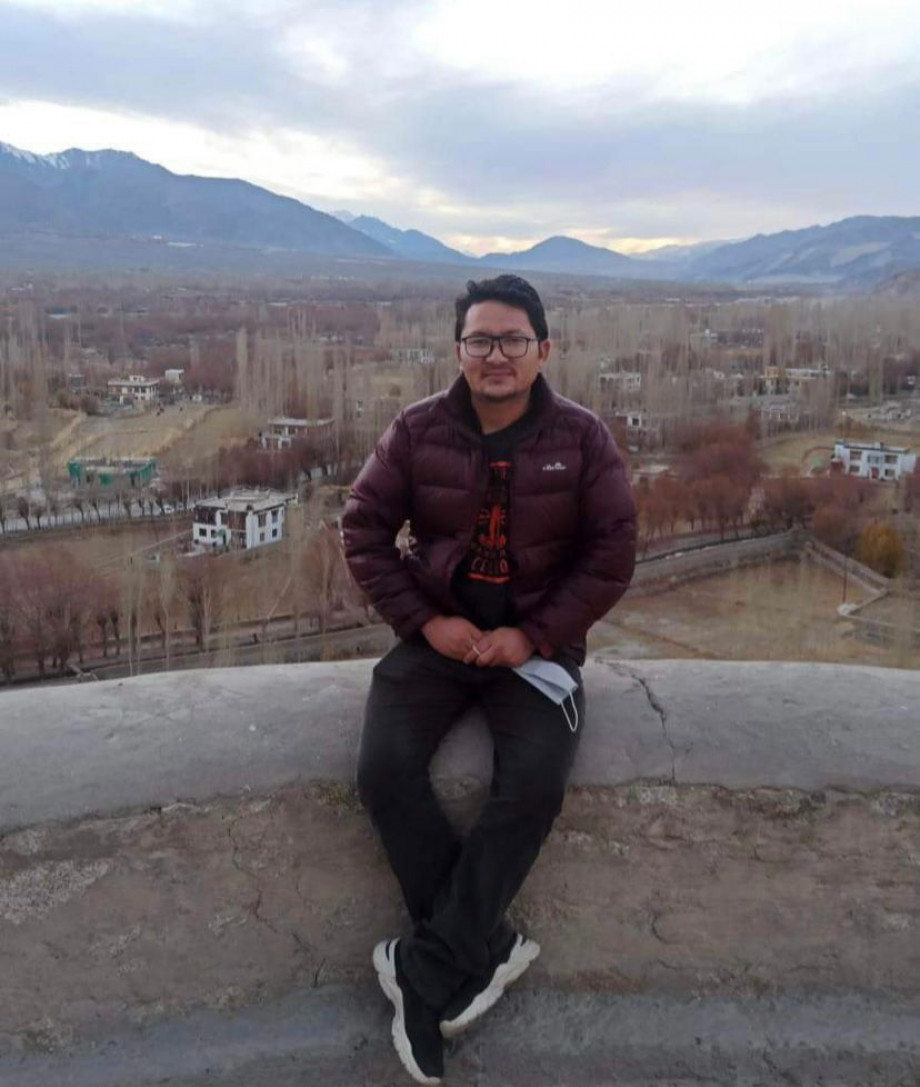In Conversation with Stanzin Sherap, Life Coach

Q. Introduce yourself to the readers. Why did you choose to become a life coach, and why is it needed?
I am Stanzin Shesrap from Domkhar village, Sham Valley. I have been coaching Ladakhi students for 15 years, initially in Jammu and Delhi, and for the last five years in Leh-Ladakh. My sessions are open to all age groups since life coaching isn’t age-specific.
Academic education is often degree-focused, lacking emphasis on skill development and self-reflection. I noticed that highly educated individuals often lead more stressful lives. This realization led me to explore life coaching and self-examination programs in Delhi, which had a profound impact on me.
Applying these learnings brought me immense mental peace, and I now share them with my students.
Life coaching is essential as it helps individuals take responsibility for their thoughts, words, and actions, complementing academic education and leading to a more balanced life.
Q. Do you think people forget to think about themselves in today’s fast-moving world? Elaborate on the significance of self-observation.
I’m not sure if time is truly moving faster or if it just feels that way, but people are increasingly focused on societal expectations rather than self-improvement.
An unemployed student stresses over finding a job, but employment brings new worries—transfers, promotions, and workplace politics. Even freelancers often seek societal validation over personal satisfaction. Acting under external pressures instead of self-awareness leads to a lack of personal understanding.
Neglecting self-observation fuels stress. Our education system teaches about the world but not about oneself. A stable job doesn’t always bring fulfillment, and many young people feel lost despite degrees and coaching. Prioritizing self-awareness is crucial for a balanced and meaningful life.
Q. Ladakh is witnessing a rising number of youth getting involved in drug and substance abuse. What are the reasons behind this shift in society?
The increasing concern over drug consumption and alcoholism among youth suggests that agencies working to address these issues are either inactive or not effective enough in Ladakh.
Awareness about mental health disorders remains limited to certain sections of society, leaving many without access to crucial information and support. Due to delayed or inadequate understanding of psychological well-being, an increasing number of young people are turning to substances, drugs, or alcohol as coping mechanisms for stress and other mental health struggles.
Additionally, the existing psychology and mental health support system may not be fully equipped to reach the masses or address every mental health-related issue effectively. This lack of timely intervention further exacerbates the problem, pushing more youth toward substance abuse as an escape. Addressing this issue requires a more proactive approach—strengthening mental health awareness, expanding psychological support services, and ensuring that prevention programs are accessible to all.
Q. The issue is not limited to youth alone; alcoholism is also prevalent among other age groups. Can you elaborate with Ladakh as an example?
Substance abuse isn’t limited to youth—alcoholism is widespread among all age groups in Ladakh.
As Viktor Frankl states in Man’s Search for Meaning, people often turn to substances to fill a void of loneliness or purposelessness. In Ladakh, alcohol consumption is particularly high among men struggling with family issues, boredom, or existential crises. Many middle-aged and older individuals use alcohol as a coping mechanism, believing “death is inevitable.”
This issue isn’t just social but deeply psychological, requiring awareness, strong support systems, and community intervention to address its root causes.
Q. What advice would you give to someone who is struggling with substance abuse or prone to addiction?
True happiness doesn’t come from external dependencies like drugs, alcohol, people, or even travel. Contentment is possible from within, no matter where you are.
Wisdom and self-awareness are key to breaking harmful patterns. Question whether your beliefs and behaviors are truly your own or shaped by others. Relying on external sources for fulfillment often leads to disappointment—inner strength and self-reflection are essential.
Life has challenges, but finding meaning is a personal responsibility. Life coaching helps individuals recognize their worth and develop a mindset that leads to true fulfillment.
Q. How can government organizations, civil society, or NGOs contribute to preventing drug use in society?
The environment plays a key role in influencing substance abuse, whether it’s normalized or discouraged at home, school, or within the community. A strong support system is vital for both prevention and recovery.
• Family and friends can raise awareness by sharing the harmful effects of substance abuse through real-life examples and emphasizing its impact on users and their loved ones.
• Parents should avoid pressuring their children into careers or lifestyles that don’t match their interests. Prioritizing mental well-being can prevent stress-induced addiction.
• Teachers and mentors must stress the importance of mental and physical health, guiding students toward healthier coping mechanisms.
• Peers and community members should provide encouragement and support, promoting positive habits instead of isolating or stigmatizing those struggling with addiction.
In his book Atomic Habits, James Clear shares the example of U.S. soldiers during the Vietnam War who used drugs while in Afghanistan but managed to quit after returning to a healthier environment. This shows the importance of surroundings in breaking habits.
By fostering supportive and understanding environments, families, educators, and peers can significantly help prevent substance abuse and support recovery.
Message to the readers
"Ladakh’s beauty is a gift, and we must ensure a fulfilling life within it. Self-awareness, guided by life coaching and neuroscience, is key. Schools must focus on practical skills—finance, communication, and AI—beyond academics. True happiness comes from balancing personal and professional life, making it a lived reality, not just an idea."





